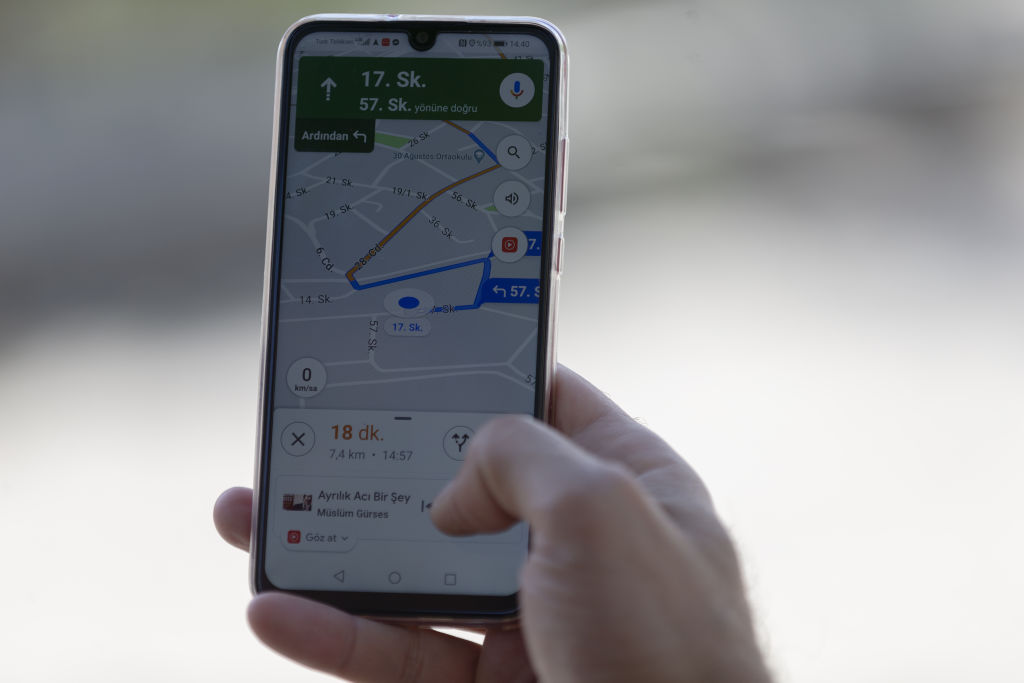
Alphabet Inc.’s Google is changing its Maps tool so that the company no longer has access to users' individual location histories, cutting off its ability to respond to law enforcement warrants that ask for data on everyone who was in the vicinity of a crime.
Google is changing its Location History feature on Google Maps, according to a blog post this week. The feature, which Google says is off by default, helps users remember where they’ve been. The company said Thursday that for users who have it enabled, location data will soon be saved directly on users’ devices, blocking Google from being able to see it, and, by extension, blocking law enforcement from being able to demand that information from Google.
“Your location information is personal,” said Marlo McGriff, director of product for Google Maps, in the blog post. “We’re committed to keeping it safe, private and in your control.”
The change comes three months after a Bloomberg Businessweek investigation that found police across the U.S. were increasingly using warrants to obtain location and search data from Google, even for nonviolent cases, and even for people who had nothing to do with the crime.
“It’s well past time,” said Jennifer Lynch, the general counsel at the Electronic Frontier Foundation, a San Francisco-based nonprofit that defends digital civil liberties. “We’ve been calling on Google to make these changes for years, and I think it’s fantastic for Google users, because it means that they can take advantage of features like location history without having to fear that the police will get access to all of that data.”
Read More: How the Surveillance of Immigrants Remade American Policing
Google said it would roll out the changes gradually through the next year on its own Android and Apple Inc.’s iOS mobile operating systems, and that users will receive a notification when the update comes to their account. The company won’t be able to respond to new geofence warrants once the update is complete, including for people who choose to save encrypted backups of their location data to the cloud.
“It’s a good win for privacy rights and sets an example,” said Jake Laperruque, deputy director of the security and surveillance project at the Center for Democracy & Technology. The move validates what litigators defending the privacy of location data have long argued in court: that just because a company might hold data as part of its business operations, that doesn’t mean users have agreed the company has a right to share it with a third party.
Lynch, the EFF lawyer, said that while Google deserves credit for the move, it’s long been the only tech company that that the EFF and other civil-liberties groups have seen responding to geofence warrants. “It’s great that Google is doing this, but at the same time, nobody else has been storing and collecting data in the same way as Google,” she said. Apple, which also has an app for Maps, has said it’s technically unable to supply the sort of location data police want.
There’s still another kind of warrant that privacy advocates are concerned about: so-called reverse keyword search warrants, where police can ask a technology company to provide data on the people who have searched for a given term. “Search queries can be extremely sensitive, even if you’re just searching for an address,” Lynch said.
More Must-Reads from TIME
- Cybersecurity Experts Are Sounding the Alarm on DOGE
- Meet the 2025 Women of the Year
- The Harsh Truth About Disability Inclusion
- Why Do More Young Adults Have Cancer?
- Colman Domingo Leads With Radical Love
- How to Get Better at Doing Things Alone
- Michelle Zauner Stares Down the Darkness
Contact us at letters@time.com